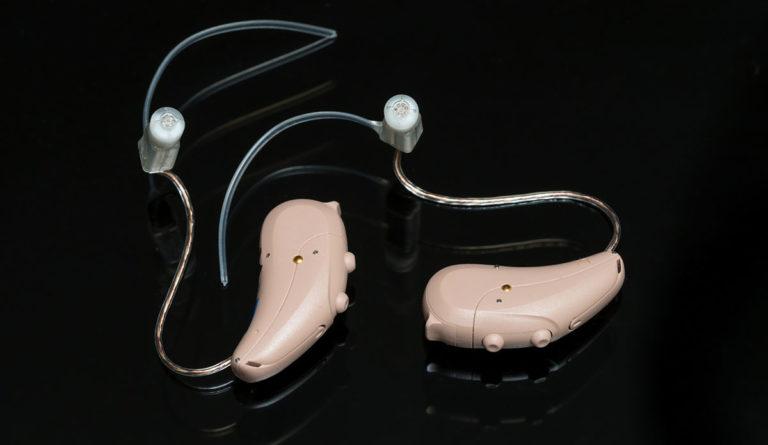Hearing Loss is Memory Loss
Asri Maharani and colleagues followed patients for 18 years to measure associations between hearing aid use and episodic memory. Memory loss slowed after participants started using hearing aids.

Read Time: 3 minutes
Published:
According to the 2016 World Alzheimer Report, 47 million people have dementia. By 2050, that number is expected to exceed 130 million. Since at least 1989, researchers have documented that hearing loss is associated with dementia. One-third of adults age 65-74 and almost half over age 75 experience hearing loss.
Two hypotheses explain the relationship between hearing loss and cognitive decline. The common cause hypothesis assumes that degeneration of the central nervous system accounts for both hearing loss and cognitive decline. The cascade hypothesis suggests that hearing loss leads to less stimulation of the brain, which then leads to cognitive decline.
A recent study published by Asri Maharani and colleagues in the Journal of the American Geriatrics Society followed patients for 18 years to measure associations between hearing aid use and episodic memory, defined as “the ability to recall and mentally re-experience specific episodes from one’s personal past.” The researchers measured the rate of cognitive decline both before and after hearing aid use began in over 2,000 people.
Episodic memory and cognitive decline were measured using a word recall test. Participants were read a list of ten words and then asked to repeat them immediately and again after a short delay. The researchers note that they focused on episodic memory because it is age-sensitive and strongly correlated with dementia. Study participants also self-reported hearing aid use.
Episodic memory scores decreased as participants aged. However, the researchers found that memory loss slowed after participants started using hearing aids.
Episodic memory scores decreased as participants aged. However, the researchers found that memory loss slowed after participants started using hearing aids. These findings support the cascade hypothesis that memory loss is caused by lack of stimulation.
When asked about the implications of these results in an email interview, Dr. Maharani, the lead author, said, “Our finding underlines just how important it is to overcome the barriers which deny people from accessing hearing and visual aids. Treating age-related hearing impairment has a significant consequence on cognitive status; the earlier hearing impairment is identified and treated, the better the probable outcome.”
Many persons do not seek treatment for hearing loss because of the costs, as state-of-the art prescription hearing aids can cost thousands of dollars. Others do not seek treatment because of a lack of awareness of hearing impairment, which often occurs gradually. Still others resist hearing aid usage due pride or vanity. The researchers highlight that steps need to be taken to ensure that those who are low-income have access to evaluation of hearing loss and to treatment. Some forms of insurance cover the cost of hearing aids, including Medicaid in many states.
The FDA is currently drafting legislation on a new category of over-the-counter hearing aids, which is expected to put pressure on current manufacturers to lower prices. The market for hearing aids is expected to expand as the population ages. Families and physician need to be attentive to hearing loss beginning in middle age. You can’t remember what you can’t hear.
Feature image: BackyardProduction/iStock



